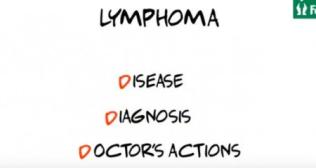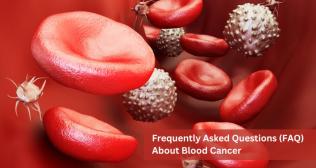
Best Blood Cancer Treatment in Mumbai
Best Blood Cancer Treatment in Mumbai
Blood Cancer: Types, Common Symptoms, Causes, Treatment and Prognosis
Learning that you or a loved one has blood cancer can be overwhelming. It is an experience that comes with uncertainty and significant emotional distress. At Fortis Hospital, Mulund, our experienced and dedicated team of blood cancer experts is here to assist you and your family, and most importantly, help find a treatment plan that best suits your needs and goals. We are committed to providing the highest quality of care to children and adults with blood cancer.
Why Choose Fortis Hospital, Mulund, for Blood Cancer?
When you or a loved one has been diagnosed with a blood disorder like blood cancer, you want advanced treatment from expert doctors. And when you seek care at Fortis Hospital, Mulund, you can expect:
- Compassionate, personalized care – our team of Heamatology specialists works with you to create a personalized plan based on your unique individual needs. Our compassionate doctors support you and your loved ones throughout this challenging journey, from diagnosis to recovery and beyond.
- Advanced diagnosis and treatment – Our expert doctors and pathologists employ cutting-edge technology to accurately diagnose and determine the best treatment options for blood cancer.
- A full range of treatment options – our blood cancer specialists partner with you and your family to decide the best treatment options for the type of blood cancer you have, giving you the best chance for a remission or a cure. We offer a range of treatments, including chemotherapy, radiation therapy, targeted therapy, bone marrow transplant, immunotherapy and CAR T-cell therapy.
- Multidisciplinary team approach – because blood cancer can affect individuals differently, our haematologist-oncologists collaborate closely with doctors from various specialities to address each patient’s unique needs, while providing expert care at each step.
In this article, we will cover what blood cancer exactly is, its signs and symptoms, types, causes and risk factors, treatment options, and outlook.
What is Blood Cancer?
Blood cancer is a group of conditions that affect the production and function of blood cells. It often originates in the bone marrow, where stem cells are made. These stem cells in bone marrow develop into:
- Red blood cells, which deliver oxygen throughout the body
- White blood cells, which protect your body from infection
- Platelets, which stop bleeding
Blood cancer occurs when abnormal blood cells grow uncontrollably, disrupting the normal process of blood cell development. This uncontrolled growth of cancerous or abnormal blood cells prevents normal blood cells from performing their functions.
Some types of blood cancer most commonly affect children, while other forms develop mostly in adults. Certain types of blood cancer affect both children and adults.
What are the Types of Blood Cancer?
There are different types of blood cancer. However, the three major types include:
- Leukaemia
- Lymphoma
- Myeloma
These cancers differ in the types of blood cells they affect and act in different ways, with each type having several subtypes.
Other types of blood cancer include myelodysplastic syndromes (MDS) and myeloproliferative neoplasms (MPN).
Leukaemia
Leukaemia originates in leukocytes, which are white blood cells that form in bone marrow, the spongy inner part of bones. It is the most common form of cancer in children and adolescents. With leukaemia, the bone marrow produces an excessive amount of immature white blood cells, impairing the production of normal or healthy white blood cells and red blood cells and platelets.
The main subtypes of leukaemia are:
- Acute lymphocytic leukaemia (ALL)
- Acute myeloid leukaemia (AML)
- Chronic lymphocytic leukaemia (CLL)
- Chronic myeloid leukaemia (CML)
Doctors classify leukaemia based on how fast the disease progresses and which type of white blood cell is involved.
Lymphoma
This type of blood cancer starts from lymphocytes, a type of white blood cell that fights infection. Lymphoma affects the lymphatic system, which regulates bodily fluids and protects you from infections and diseases. Lymphoma occurs when abnormal lymphocytes become lymphoma cells, which multiply and form tumours in your lymph nodes and other tissues. The two main subtypes are:
- Hodgkin lymphoma
- Non-Hodgkin lymphoma
Myeloma
Myeloma begins in bone marrow and affects a type of white blood cell called a plasma cell, which produces antibodies that help your body fight infections. These abnormal plasma cells, also known as myeloma cells, prevent normal plasma cells from producing antibodies. This leads to a weakened immune system, making you susceptible to infections. Myeloma is often referred to as multiple myeloma because it affects many parts of the body.
What are the Signs and Symptoms of Blood Cancer?
Signs and symptoms of blood cancer vary based on the type. However, they share some common symptoms, including:
- Persistent fever or chills
- Night sweats
- Fatigue and weakness that do not improve with rest or sleep
- Chest pain
- Shortness of breath
- Frequent or recurrent infections
- Bleeding or bruising without a clear cause
- Unexplained weight loss
- Appetite loss
- Nausea
- Swollen lymph nodes in the neck, armpits, or groin
- Pain in your bones or joints
- Abdominal discomfort
- Enlarged spleen or liver
Some people may not exhibit any symptoms in the initial stages, or they may mistake these signs for common illnesses such as the flu or a cold.
Also, the presentation of blood cancer symptoms can be different between children and adults. For instance, while certain symptoms such as joint and bone pain, swollen lymph nodes, are more commonly observed in children, adults are more likely to have abdominal bloating or discomfort due to an enlarged liver or spleen.
Having one or a few of these symptoms doesn’t always indicate that you have blood cancer, however, it’s essential to consult a doctor for early diagnosis and treatment if you experience any concerning symptoms.
What Causes Blood Cancer?
The exact cause of blood cancer remains unknown. However, it’s believed that blood cancer develops when the genetic material (DNA) of blood cells changes or mutates, although experts aren’t sure why this happens. The mutations in blood cell DNA caused the production of abnormal blood cells, which grow and multiply rapidly. Over time, these abnormal blood cells crowd out the normal ones in the bone marrow, leading to various blood disorders, including blood cancer.
Some risk factors for blood cancer include:
- Advancing age
- Being male
- Being obese or overweight
- Smoking or exposure to secondhand smoke
- Exposure to hazardous chemicals
- Family history of blood cancer
- Previous cancer treatment, including chemotherapy and radiation therapy
- Some health conditions – autoimmune disorders like rheumatoid arthritis and genetic disorders such as Down syndrome
How do Doctors Diagnose and Treat Blood Cancer?
Diagnosis and staging of blood cancer often happen concurrently.
Blood cancer diagnosis
To diagnose blood cancer, your doctor or care team will run a series of tests to identify the type and stage of blood cancer, which may include:
- Physical exam – to check for lymph node swelling.
- Blood tests – such as complete blood count to measure blood cell levels and a blood chemistry test to look for certain proteins in your blood that might indicate blood cancer.
- Bone marrow biopsy – to see if your bone marrow is healthy and making normal amounts of blood cells.
- Imaging tests – such as CT scans, MRIs and PET scans, to see if cancer has spread to other parts of the body.
Blood cancer experts at Fortis Hospital, Mulund, have extensive training in diagnosing and treating all types and subtypes of blood cancer, including the most complex ones. Our experts offer the most advanced treatments for all types of blood cancer.
Blood cancer treatments
Treatments for blood cancer include:
- Chemotherapy – a primary treatment for blood cancer, chemotherapy uses powerful drugs to kill cancer cells.
- Radiation therapy – this treatment uses high doses of radiation to destroy cancer cells and ease symptoms.
- Immunotherapy – it is a treatment that uses your own immune system to recognise and fight cancer cells. Monoclonal antibodies and CAR T-cell therapy are some types of immunotherapy.
- Targeted therapy – this type of treatment uses different drugs to specifically target changes in cancer cells that help them grow and survive.
- Stem cell or bone marrow transplant – this procedure involves replacing diseased blood-forming cells with healthy ones. These stem cells can grow into all types of blood cells.
- Watchful waiting – sometimes, your doctor may suggest a ‘wait and watch’ approach, without starting the treatment right away, unless symptoms appear or worsen. Also known as active surveillance, this approach involves regular blood tests and physical examinations to closely monitor disease progression and is used for slow-growing blood cancer.
At Fortis Hospital, Mulund, specialists from all areas of blood cancer care collaborate to develop a personalised treatment plan, ensuring the best possible outcomes for you.
What are the Outlook and Survival Rates of Blood Cancer?
The outlook or prognosis for blood cancer varies extensively based on the type and stage of cancer, as well as other factors such as the patient’s age, overall health, and how well the treatment works. Advances in the treatment have significantly improved the outcomes for many patients with blood cancer.
Some types of blood cancer, such as Hodgkin lymphoma, are curable, when detected and treated in their early stages, having excellent survival rates, while others are not. But when a cure is not possible, emerging treatments are helping many patients achieve remission (cancer symptoms reduce or disappear for a period of time), allowing them to live longer. Sometimes, a blood cancer can come back after a remission, which is called a relapse. In such cases, your care team will discuss further treatments with you to help achieve remission again.
Takeaway
Blood cancers affect the blood cells in different ways. Some types of blood cancer affect children, while others mostly affect adults. While the main goal of treatment is to achieve a cure, some blood cancers are chronic and are not curable. The good news is, many people with blood cancer can achieve a cure or can put their cancer into remission – thanks to modern treatments. That said, blood cancer is a serious illness, and learning about the disease and taking proactive steps can help prevent or reduce your risk.
Additionally, individuals diagnosed with the condition should take advantage of every available treatment option. They should also discuss their specific prognosis with their doctor or care team, as outcomes are highly individual and can vary based on many factors.
If you or a family member is diagnosed with a blood cancer, you want expert and compassionate care every step of the way. At Fortis Hospital, Mulund, our experts personalize your treatment to ensure all your needs are met.
Categories
Clear allMeet the doctor

- Haematology | Haematology | Paediatric Haematology and BMT
-
14 Years
-
2000
 Available at 1 different locations
Available at 1 different locations




















